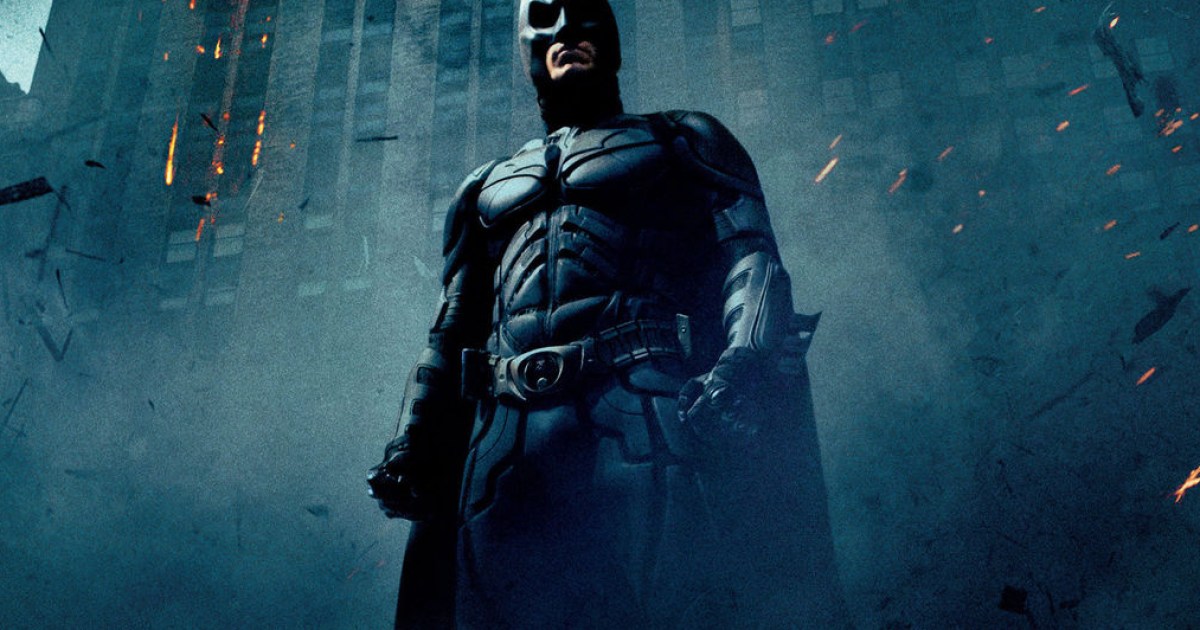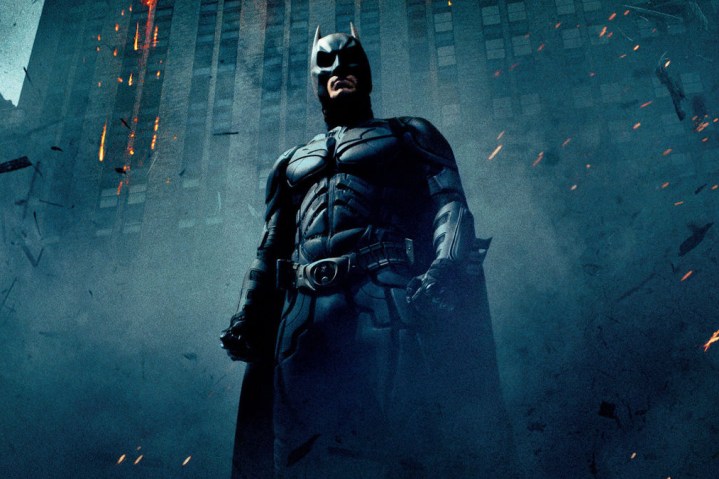
Christopher Nolan is set to go nuclear this week. The filmmaker’s long-awaited 12th film, Oppenheimer, hits theaters opposite Barbie this Friday — making it one-half of the weirdest theatrical double-feature since, hilariously enough, Nolan’s The Dark Knight opened opposite Mamma Mia in 2008. (Oh, how times have and haven’t changed.) While Oppenheimer continues Nolan’s career-long fascination with science, the film also promises to be the longest and most adult production that he’s ever constructed.
The movie’s R-rating, $100 million budget, and 3-hour runtime have made it Nolan’s biggest gamble to date. But if any filmmaker can draw audiences in for such a movie, it’s Nolan, a director whose cinematic visions have repeatedly proven to be both popular and profitable. Whether or not Oppenheimer joins his long line of blockbuster successes remains to be seen.
In honor of the film’s release, here are Nolan’s first 11 movies, ranked from worst to best.
11. Following (1998)
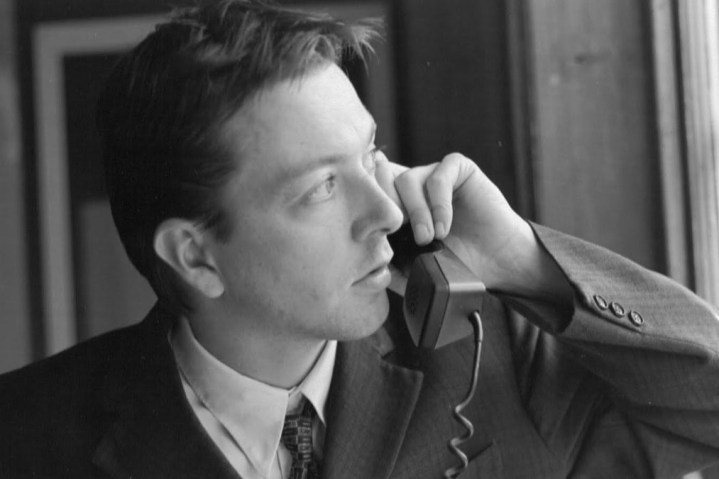
No matter how talented or influential they are, a filmmaker’s first movie usually ends up being their worst. There are some exceptions to that rule (Ari Aster’s Hereditary, Wes Anderson’s Bottle Rocket), but Nolan’s Following isn’t one of them. Made with next-to-no money and shot entirely on 16mm film stock, Following is as rough-and-ready as it gets, but it lacks many of its writer-director’s defining traits — namely, his unparalleled eye for spectacle and action.
That doesn’t mean Following is a wholly unsuccessful effort. On the contrary, it’s a perfectly fine debut feature, one that explores Nolan’s recurring themes of identity and deception. Its twist ending even foreshadows many of the narrative tricks Nolan has since tried to pull to varying degrees of success over the years. On another director’s filmography, Following might rank higher, but it’s just too slight to hold a more prestigious spot in Nolan’s legacy.
10. Insomnia (2002)
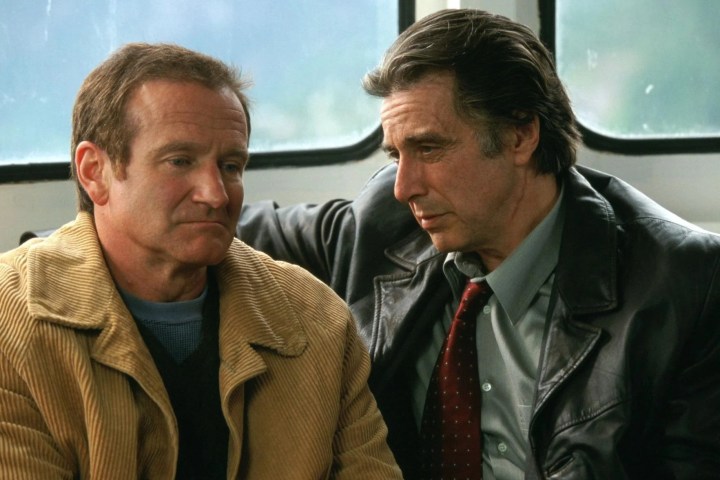
The only remake Nolan has ever made, 2002’s Insomnia is a straightforward, gorgeously atmospheric psychological thriller. Based on a Norwegian film of the same name, the movie fits perfectly at home in Nolan’s filmography, despite not being an original idea or written by him. As is the case with many of his films, the craft on display throughout Insomnia is unimpeachable, and as a pit stop between two of his career-defining movies, it represents an interesting entry for Nolan into the studio filmmaking world that he has yet to leave behind.
The problem is that Insomnia isn’t as extraordinary or distinct as many of the films that have followed it. Ultimately, it’s a slice of familiar crime fiction that’s elevated by its lead performances from Al Pacino and Robin Williams, as well as Nolan’s keen visual eye. It is, in other words, a fine way to spend a night, but it won’t necessarily keep you awake thinking about it for hours after it’s over.
9. The Dark Knight Rises (2012)
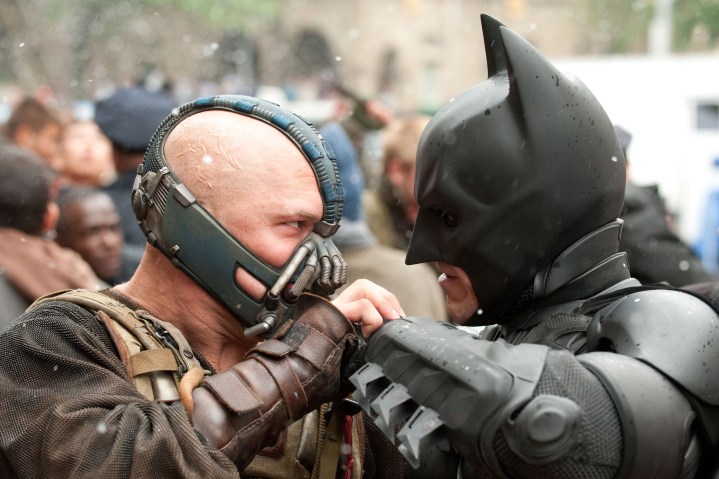
As a follow-up to the most acclaimed superhero film of all time, The Dark Knight Rises marks an undeniable step down. Coming four years after The Dark Knight, this 2012 effort is a piece of comic book entertainment that doesn’t ride the line between pulpy superhero storytelling and gritty realism nearly as well as its two predecessors. While it’s overflowing with ideas, The Dark Knight Rises doesn’t bring them all together particularly well, either. The film marks one of the rare times in his career when Nolan’s ambition, frankly, exceeds his grasp.
That doesn’t, however, mean there aren’t moments of genuine greatness scattered throughout The Dark Knight Rises. Tom Hardy’s performance as Bane is the kind of swing-for-the-fences gambit that works far better than it should, and Anne Hathaway’s slinky, scene-chewing turn as Selina Kyle/Catwoman makes her a worthy and entertaining counter to Christian Bale’s always-brooding Bruce Wayne. And then there’s Michael Caine, whose heartbroken, desperate performance as Alfred, Batman’s butler and eternal confidant, makes The Dark Knight Rises one of Nolan’s more emotionally affecting films — flaws and all.
8. Tenet (2020)
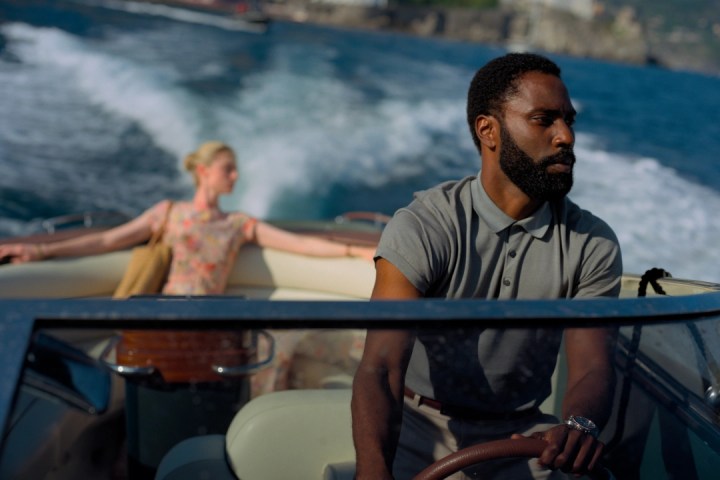
Tenet is, like The Dark Knight Rises, a bit too ambitious for its own good. A sci-fi thriller in the same vein as a few other entries on this list, it’s a film that never fully gets a handle on its time-inverting ideas or, at least, never manages to communicate them all that well. For all the missteps and clichés that drag down its script and characters, though, Tenet is one of the weirdest and most weirdly enjoyable blockbusters of the past few years.
It’s the closest Nolan has ever come to embracing his potential as a “just sit back and vibe” director, which means there are long stretches of Tenet that just move. It’s worth checking out solely for its opening opera house heist, as well as its two airport infiltrations and its last-minute Casablanca homage. Beneath all of its convoluted layers, there’s a constant sense of fun reverberating throughout Tenet, one that makes you wonder whether the film itself is the delirious result of Nolan daring to cut loose a little.
7. Memento (2000)
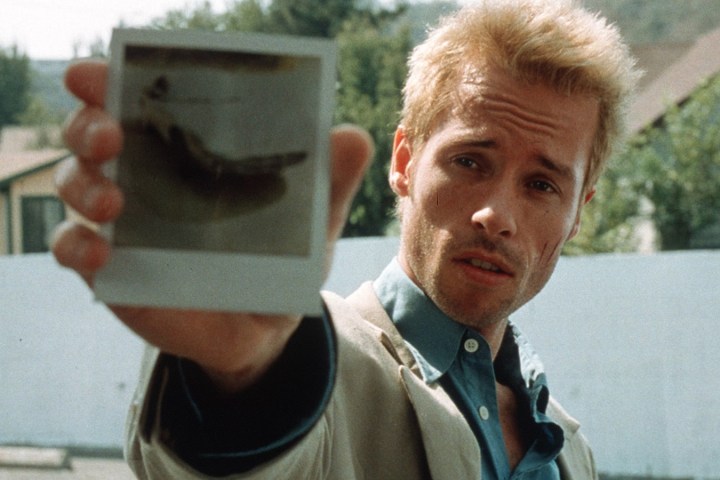
The film that put Nolan on the map, Memento is a mind-bending neo-noir that still works just as well as it did in 2000. Aesthetically, it’s a smaller and leaner film than most of the movies Nolan has made, but it’s also among his most narratively ambitious. For a writer-director whose biggest twists and ideas haven’t always translated as well to the big screen as he’s wanted them to, it’s genuinely impressive how well Nolan pulls off Memento’s Awiss-watch style structure and twisty story.
Anchored by Guy Pearce’s rugged lead performance, Memento is a brainy and endlessly watchable thriller, one that reminds you what its director is capable of achieving even when he’s forced to work in a smaller arena than he’s typically known to operate in. It may not be the best movie that Nolan has ever made, but it is a bold and endearing thriller, and arguably the second-most important film of his career.
6. Inception (2010)
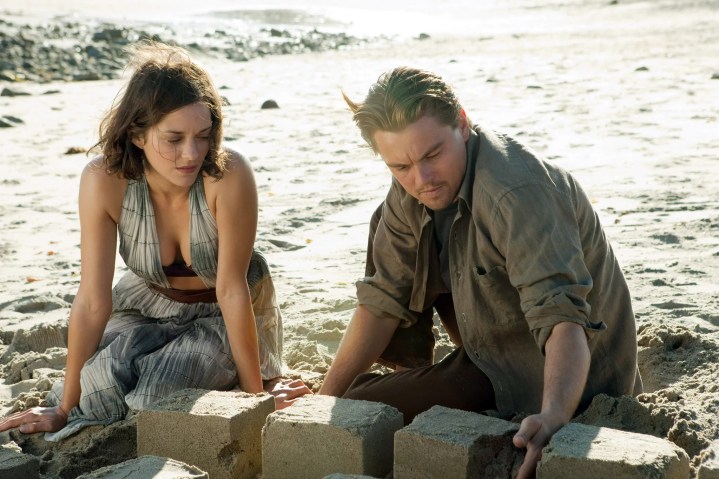
Nolan had one chance to truly capitalize on the success of 2008’s The Dark Knight. Fortunately, with Inception, he not only cemented his place as one of the most revered and popular auteurs of his generation, but also established himself as a filmmaker capable of crafting original, high-cost blockbusters that actually turn a profit. It also marked the first time in his career that Nolan truly began to dabble in the science fiction genre, which has since become a mainstay for the filmmaker.
Inception’s effectiveness as a pure sci-fi thriller is open to debate, but there’s no denying the originality of Nolan’s take on the genre, nor are there many quibbles to be had with how he uses a traditional heist movie structure to include all of the film’s many high-tech ideas and inventions. For all these reasons and more, while Inception isn’t quite seen as the game-changing blockbuster it once was, the film’s immersive qualities combined with Nolan’s tactile visual style make it easy to forgive its many, exposition-centric flaws.
5. Interstellar (2014)
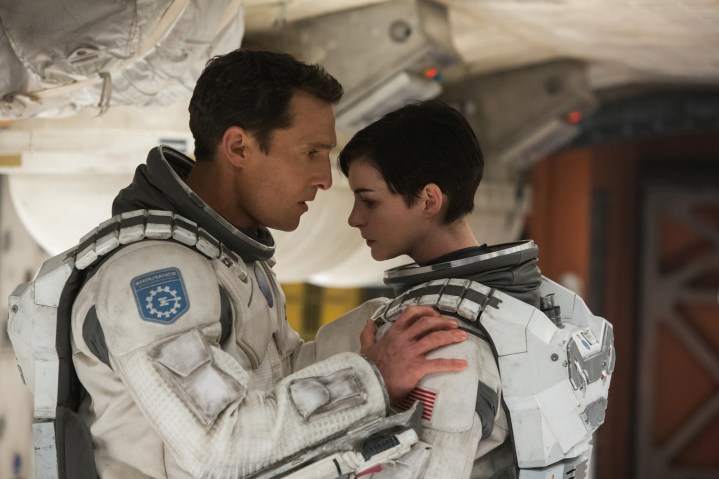
Interstellar is, in many ways, a bigger and better follow-up to Inception. Not only does it share that film’s level of narrative complexity, but it tells its story on an even bigger scale than its 2010 predecessor. Behind the scenes, the film also marked the first time Nolan worked with Nope cinematographer Hoyte van Hoytema. In Interstellar, as well as all the films they’ve made, Hoytema elevates and deepens Nolan’s visual style, imbuing it with a rich, colorful vibrancy that matches the grandiosity of its story.
Like many of Nolan’s movies, Interstellar isn’t totally successful. Not all of its third-act swings fully connect, but between Matthew McConaughey’s operatic departure from Earth, his heartbreaking confrontation with the time he’s lost, and his desperate, second-act docking attempt, Interstellar features at least three of the greatest sequences Nolan has ever crafted. As corny as its delivery may occasionally be, the film’s ideas about the timelessness of love are worthwhile and pack a genuine punch — forever discrediting the accusations of emotional coldness that have often been lobbed Nolan’s way.
4. Batman Begins (2005)
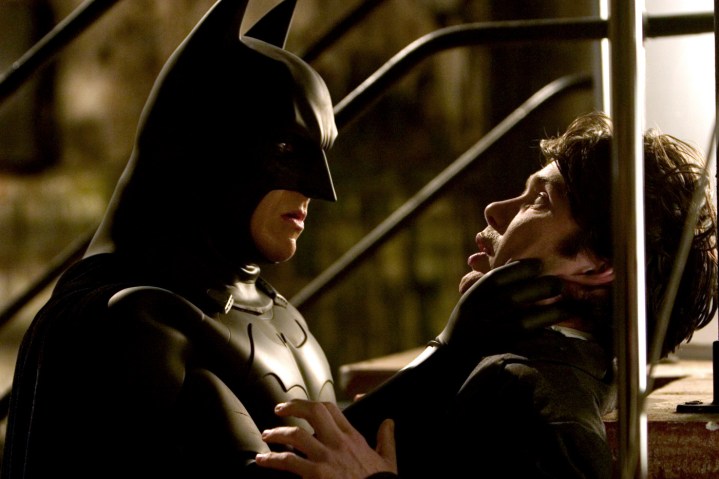
Nolan’s first foray into the world of comic book storytelling resulted in one of his best and most entertaining films. A reboot of the Batman franchise, 2005’s Batman Begins gave Nolan his first chance to work on a massive blockbuster scale. The result was an unambiguous success, a film that brings the character of Bruce Wayne and the crime-ridden world of Gotham City to life with such specificity and energy that it successfully sheds itself of the staleness of its otherwise familiar superhero origin story.
Its legacy may have been a bit overshadowed by the acclaim of its sequel (we’ll get to that soon), but one need only watch Batman Begins again to be reminded of just how effective it is. The film immediately pulls you in, and the ride it takes you on is thrilling and well-realized enough to make you forget, if only for a second, the superhero fatigue so many of us feel right now. Nearly 20 years after its release, it may still be the most purely fun movie Nolan has ever made.
3. The Prestige (2006)
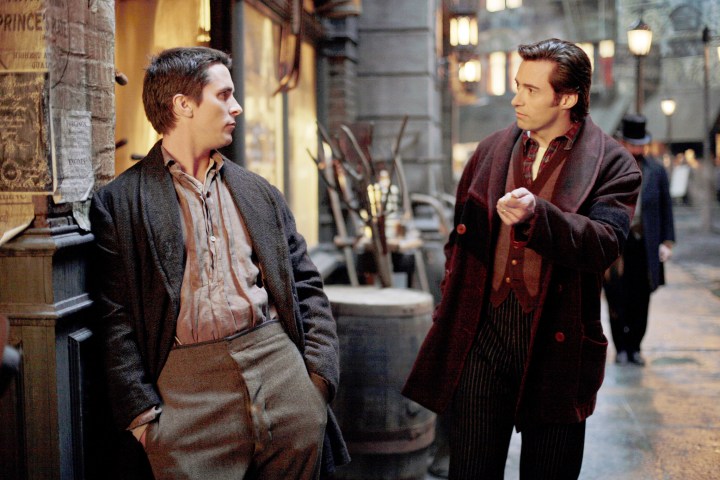
Over the course of his career, Nolan hasn’t been afraid to embrace his love of narrative trickery. However, none of the many twisty films he’s made over the years work quite as well as The Prestige. A seemingly simple story about a rivalry between two ambitious magicians (Christian Bale and Hugh Jackman), Nolan’s 2006 follow-up to the straightforwardly crowd-pleasing Batman Begins is a surprisingly acidic, mean-spirited noir thriller.
Like Memento, it’s a film that both deepens and grows more tragic every time you rewatch it. Despite its period setting and incredibly specific story, it also feels like one of the most personal movies Nolan has ever made. Perhaps that’s because it, like Interstellar, is one of his only films that explores both the costs and rewards of seeking greatness. In the case of The Prestige, such ambition leads to not only great loss, but outright death.
2. The Dark Knight (2008)
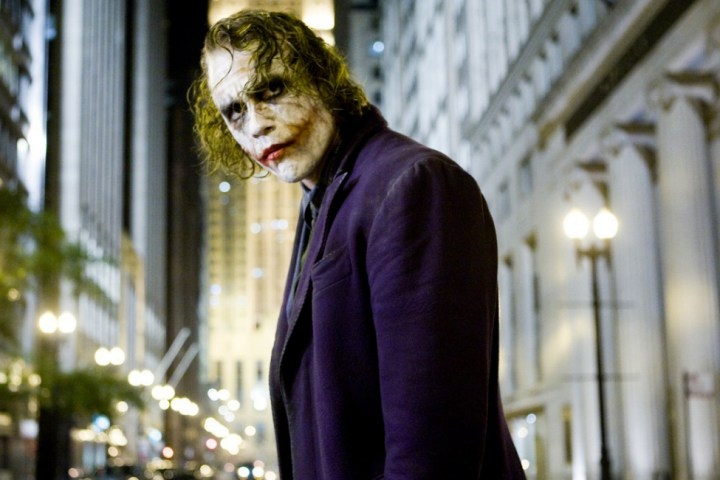
With the exception of the next film on this list, there’s no movie that better exemplifies Nolan’s skills as a showman and cinematic orchestrator than The Dark Knight. From the moment it begins to the moment it ends, The Dark Knight maintains a constant sense of rising tension. That’s due, in no small part, to Lee Smith’s editing, which imbues it with a driving, propulsive pace that makes it easy to ignore its many logic jumps and plot holes.
The film, like any great Hitchcockian thriller, rides high purely on its own attitude and craftsmanship. It is, consequently, the perfect home for Heath Ledger’s astonishing, Oscar-winning performance as The Joker, which is itself a bundle of psychotic, thorny energy that The Dark Knight not only embraces, but mirrors and adopts. There aren’t many modern crime thrillers that move or work as well as this film, which pulses with Nolan’s own fervent desire to, once and for all, prove his own worth. To say he did so would be a colossal understatement.
1. Dunkirk (2017)
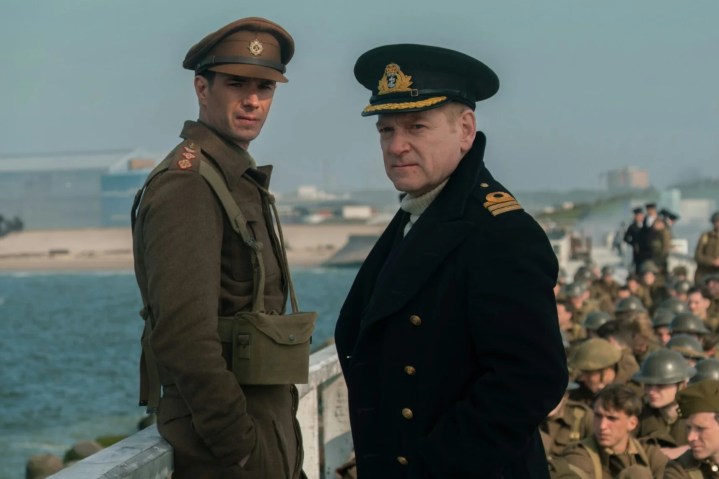
For a while, it was unclear whether Nolan would ever again be able to achieve the same visceral cinematic highs he did in The Dark Knight. Then Dunkirk was released in 2017. The leanest, meanest blockbuster that Nolan has ever made, Dunkirk tells its iconic story of unlikely wartime victory the only way its maker knows how. That is to say: With an unrelenting pace and singular eye for large-scale screen action. It’s the most edge-of-your-seat, engaging war movie since Saving Private Ryan.
What makes Dunkirk so special and enduring, though, is where its shows of strength and explosive devastation ultimately lead. Its third act is the most quietly elegant and graceful section of filmmaking that Nolan has ever made, and also the most emotionally cathartic. By resisting his own tendency to overexplain and overstuff, the filmmaker achieves a poetic grace that is breathtakingly unexpected and startingly emotional.
As a director, Nolan has long been fascinated by how easily the lines between victory and defeat can blur. But in no other film has he managed to make the mere act of survival seem so beautiful and so necessary.
Editors’ Recommendations

